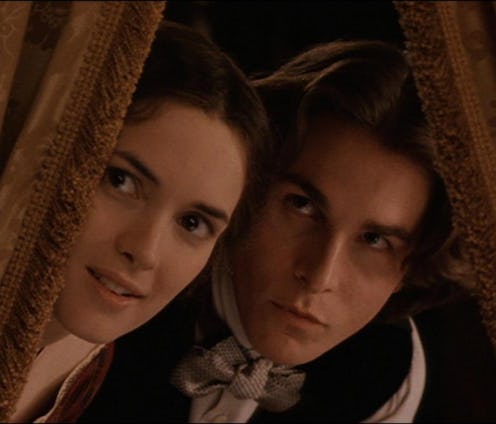Books
How 'Little Women' Made Me A Feminist

As a child, I read a lot of stories that featured kickass heroines. The books I read taught me about feminism before I even knew what that word meant. One book in particular was a childhood favorite, and the book that made me a feminist. That book is Little Women by Louisa May Alcott.
As a child, I read a lot of books with feminist themes and kickass heroines. Even my writing reflected these influences. When I was eight years old, I wrote a short story about a 10-year-old girl who will eat only jam and refuses to marry a prince she doesn’t love. She ends up abdicating the throne and running off to follow her true dreams.
It never occurred to me that women wouldn’t be considered equal in real life, because I knew from the stories I was reading that they obviously were. The girls in my books were flawed and real, and they could save the day any time, any place.
So many books contributed to my feminism. It's extremely difficult to choose just one that shaped me most, but there is a book that stands out: Little Women. It was not a perfectly feminist book — and that's part of the reason it helped make me a feminist. Here's why:
1. It Featured Many Very Different Female Characters
Meg, Jo, Beth, and Amy begin as somewhat archetypal characters. Each March sister represents a different quality. Meg is traditional and kind; Beth is shy and good; Jo is outspoken and independent; and Amy is creative and passionate. As the book progresses, their personalities develop and mature in different ways. Instead of creating a story with a perfect female character, Alcott instead gave us four flawed heroines who are extremely different, yet all relatable in their own way. Though Jo was my instant favorite, I appreciate how Alcott didn't only write one "type" of girl who was perfect and witty and heroic all the time.
2. It Demonstrated The Importance Of Supporting Others And Treating Them As Equals
The four sisters create a kind of utopia in the first half of the book. They all flourish when they all work together. Led by their intrepid mother, the sisters learn how they can accomplish the most when they combine their strengths. Laurie also joins their circle. Everyone is equal, everyone supports one another, and everything seems ideal.
3. It Defied Gender Roles
Jo wears pants and plays the villain in her plays, and Laurie is sensitive and soft-spoken. There's no need for traditional gender roles here: both characters are lovable and real and their dispositions don't have to fit into a predetermined box.
4. It Forced Me To Recognize Societal Restrictions
That being said, the predetermined box exists. I remember the frustration I felt when I first read Little Women and realized how society restricted Jo from pursuing her dreams. It was infuriating, but it was also eye-opening to see a character treated differently just because she was a woman.
5. It Left Me With An Ending I Found Dissatisfying
As a young girl reading Little Women, I assumed Jo would become a famous playwright and go on amazing adventures her whole life. After all, that was her dream. Instead, she ended up darning socks, and Laurie, her best friend, ran off with Amy. What? I remember being outraged by the ending of Little Women. Jo March shouldn't be restricted to darning socks! She needed to travel the world and open her own theatre! This dissatisfaction opened my eyes to the inequalities of the era — inequalities that still exist in many forms today. I knew that I didn't believe in inequality — I believed in equality for all people, regardless of age, sex, gender, race, sexuality, etc.
I knew I was a feminist.
Images: Giphy (5), Columbia Pictures (1)